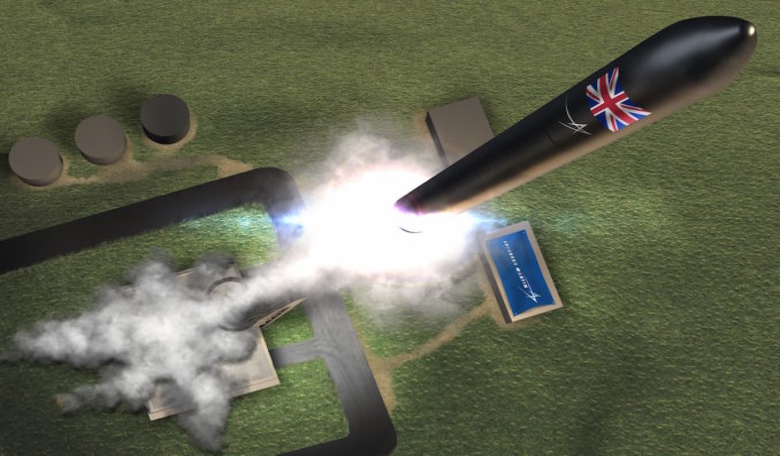When it comes to holidaying in the UK, both Cornwall and Scotland could be classed as ideal locations in which to take a vacation. Soon, they could both become destinations in which to watch a rocket launch, as each region has formed strategic partnerships with prominent aerospace companies to develop launch and spaceport facilities.
The announcements, which have been made this week at the Farnborough International airshow, UK, report that Lockheed Martin is to establish vertical launch operations in the remote A'Mhoine Peninsula in Sutherland, Scotland, while at the other end of the country Virgin Orbit has selected Spaceport Cornwall as its preferred base for one of its first launches of its LauncherOne system outside of its US home.
The newly nominated spaceport in Sutherland is being backed by the UK Space Agency with an initial investment of £23.5 million. A further £5.5 million will go to British company Orbex to build an innovative new rocket for launch from the Scottish site. Orbex’s orbital launch vehicle, called Prime, will deliver small satellites into Earth’s orbit, using a single renewable fuel, bio-propane, that cuts carbon emissions by 90 percent compared to hydrocarbon fuels.
“The countdown to the first orbital rocket launch from UK soil has officially begun,” said Patrick Wood, Lockheed Martin’s UK Country Executive for Space. “The UK Government has stated its desire to grow the UK’s space sector to ten percent of the global space economy by 2030. We are proud to be selected to help them achieve this goal. This initiative will not only spark advancements in science and innovation, it will create new opportunities for current and future UK-based suppliers to become part of the next space age.”
Meanwhile, down in Cornwall, Virgin Orbit plans to use a modified Boeing 747-400 aircraft called “Cosmic Girl” – the first stage of its two stage orbital launch vehicle – to carry its LauncherOne rocket to around 35,000 feet over the Atlantic. At around this height, stage two will deploy a rocket that will then deliver its payload into space.
The signing of this agreement is the culmination of over a year’s undertaking by the two parties. Following Virgin Orbit’s commitment, work will now commence to develop a detailed plan for launch, by upgrading Cornwall Airport Newquay to support a horizontal air-launch platform by 2021.
“The announcement of a strategic partnership between Virgin Orbit and Cornwall Spaceport is great news for the region and the UK’s ambitions for regular, reliable and responsible access to space. This partnership could see Virgin Orbit’s innovative horizontal launch technology helping the UK’s small satellite industry access space from the convenience of a Spaceport in Cornwall. We will work with both partners to support their ambitions, as we take the next steps in our national spaceflight programme as part of the government’s modern Industrial strategy,” said UK Science Minister Sam Gyimah.
Also hoping to capitalise on the development of the spaceport is Skyrora, who announced at the airshow that it will begin its engine testing programme at Cornwall Airport Newquay’s rocket test facility later this year.
The test facility is seen as a critical piece of infrastructure for Spaceport Cornwall which was first unveiled as one of the UK’s potential Spaceport locations in July 2014 because of its long runway, uncongested airspace and direct access to the Atlantic Ocean.
The event will also be the first liquid engine test by a British small-satellite launcher to take place in the UK since Black Arrow around 50 years ago.
Business Secretary Greg Clark said: “As a nation of innovators and entrepreneurs, we want Britain to be the first place in mainland Europe to launch satellites as part of our Industrial Strategy. The UK’s thriving space industry, research community and aerospace supply chain put the UK in a leading position to develop both vertical and horizontal launch sites.”
The UK’s space sector employs around 38,500 people and has an estimated annual revenue of £13.7 billion. It has been growing at 8 percent a year over the last ten years; four times as fast as the rest of the UK economy.











